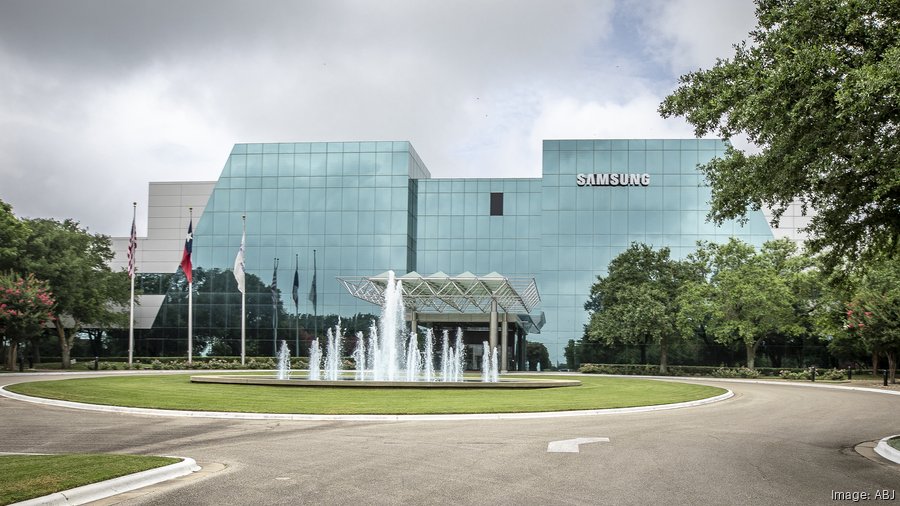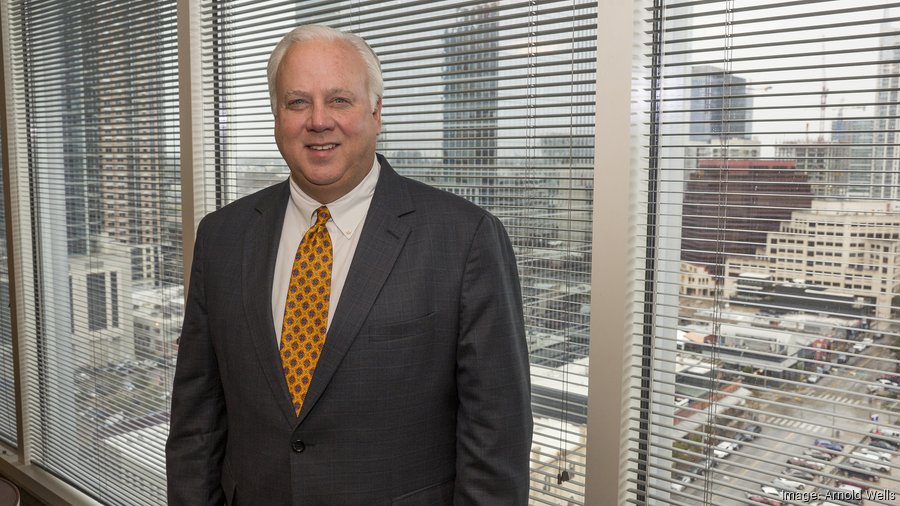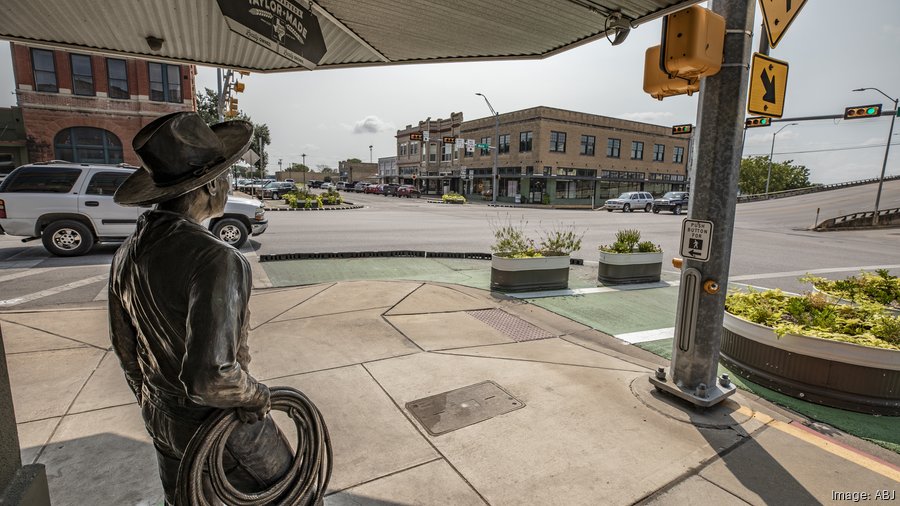Leaders in Taylor and Williamson County have taken a major step toward securing Samsung Electronics Co.'s $17 billion plant — one of the largest foreign investments in U.S. history — by approving a slew of incentives for the company.
In the early evening Sept. 8, Taylor City Council and the Williamson County Commissioners Court approved incentives agreements for the project, which largely consist of property tax abatements over the next few decades.
No final decision has been made on the semiconductor factory location. The incentives agreements point out as much, and Samsung spokespeople have maintained that the process remains fluid. But the votes in Taylor, a suburb northeast of Austin, solidify it as frontrunner. No other locale has approved public incentives for the South Korea-based company.
The Taylor Independent School District Event Center was packed for the historic meeting. There was overwhelming support for Samsung's project, with only one resident speaking in opposition to the project because of floodplain concerns.
Those in support included leaders of regional and state manufacturing associations, economic development groups, educational groups and Taylor businesses. Texas Beer Co. founder Ian Davis even promised to make a Samsung-inspired brew if the project lands in Taylor. Some government leaders were even moved to tears more than once.
"Tonight we're talking about the largest economic development project in the history of Texas," Williamson County Judge Bill Gravell said at the meeting. "We're talking about the largest economic development project with foreign investment ever in the United States of America."
For months, the company has been scouting Taylor and Austin, where Samsung already has a large manufacturing campus, in addition to Phoenix and upstate New York. It is looking to build a next-generation factory where it can produce smaller, more advanced computer chips to compete with rival Taiwan Semiconductor Manufacturing Co.
At least 1,800 jobs are promised, along with thousands of indirect jobs.
If it chooses the Taylor area, Samsung would put the factory on nearly 1,200 acres west of town. Council will consider creating reinvestment zones for the site at a Sept. 9 meeting under Chapters 311 and 312 of the state tax code.
Jon Taylor, Samsung's vice president of fab engineering, at the Sept. 8 meeting highlighted Samsung's long history of corporate citizenship in the Austin area, where it has been making chips for more than 25 years.He said the proposed agreements for the Taylor site would allow Samsung to continue “into our very last stage of the final decision.”
"This site will serve as a foundation for cutting-edge technology, good-paying jobs, national security and so much more for many generations to come. This $17 billion investment will be only the beginning," he said. "We would love to expand here in Texas and be part of the many amazing moments that will unfold in the coming years.”
Samsung spokesperson Michele Glaze said the incentives approvals do not seal the deal for Taylor.
"No decision has been made by Samsung on a site for a potential expansion," Glaze said in a statement. "All sites are under consideration and each community is performing the appropriate due diligence to put themselves in the best position for this opportunity. Today’s actions by Williamson County and City of Taylor are part of their due diligence. We are honored to have such thoughtful consideration from all of the sites."
While negotiations are underway in Travis County, no public documents have surfaced about possible incentives.
If Samsung picks Central Texas for the factory, it would further catapult the local semiconductor industry into rarified global air and have wide-reaching impacts across the entire economy — especially in a small, rural city such as Taylor. Local economic development experts have said the construction of the facility alone could generate an economic impact of up to $28 billion across the region.
Taylor has seen much less economic development than other parts of the county in the past decade. Its population reached 16,267 in 2020, up 7% from 2010, according to the U.S. Census Bureau. Williamson County’s population as a whole ballooned 44% in that time.

Economic experts react
Though Samsung hasn't made its official announcement, many economic experts agreed that Taylor is clearly leading the pack in this national site search.
“I don't know where Taylor was in the mix in the beginning, but it now appears as though they have earned the right to be considered seriously,” said Gary Farmer, chairman of Opportunity Austin, the economic development arm of the Greater Austin Chamber of Commerce. “The elected officials and the staff in Taylor and Williamson County should be applauded for putting their best foot forward, and for making what appears to be a very viable offer to attract one of the most important economic development deals in the history of the country.”

Farmer did caution that the incentives agreement, though important, is only one element of the company’s final decision.
“I am told … that they are evaluating each and every location and all of the myriad factors that go into making that ultimate determination. Clearly, Taylor and Williamson County moving to this level should be quite helpful for Taylor and quite helpful for Central Texas,” he said. “I'm hopeful that Austin and Travis County will put forward another compelling proposal so that Samsung has two proposals from Central Texas. That will put us all in a very good position relative to this global competition.”
John Boyd Jr., principal at Boca Raton, Florida-based site selection firm The Boyd Company Inc., said he's not surprised that Taylor appears to be leading the race.
"I view that 17-mile stretch of U.S. Highway 79 in Williamson County, which connects Taylor with Round Rock, as some of the most prized industrial real estate in the entire U.S.," Boyd said. "The overall support the community and elected officials in Taylor have given this project, with the generous, long-term incentive package, I think is also very significant."
Boyd also said the proposal from Taylor and Williamson County officials will create goodwill between the community and Samsung, proving it will be an ideal place for the massive project.
"For an incentive deal to be put forth tends to be indicative of one of the final steps of this becoming official,” Boyd said. “I think officials in (Arizona and New York) would acknowledge that they were always outlier candidates given Samsung's large presence in Texas and given Samsung rival TSMC and Intel's large presence in Arizona, and the overall difficult business climate in New York.
“But economic development is very competitive. Should something happen in the 11th hour … anything is possible,” he added. “If I were Texas, I would feel pretty good right now. This appears to be the last piece of the puzzle.”
Angelos Angelou, head of Austin-based consulting firm AngelouEconomics, agreed that Taylor appears in the lead to win the project, based on the incentives negotiations. Angelou, who also served for 12 years at the Greater Austin Chamber of Commerce as vice president of economic development and chief economist, has been at the negotiating table with Samsung before.
“I think this is going to be a great marriage between a great company and a city that will be totally transformed in the next 20 to 30 years from this project,” Angelou said.
Incentives details
Samsung stands to receive property tax abatements from both the city and county, plus other perks, if it chooses Taylor for its project.
Williamson County approved a 20-year Chapter 381 incentive agreement and a development agreement with the company.
If Samsung chooses Taylor, the Chapter 381 agreement will begin a 10-year term once the company occupies the facility, or Jan. 1, 2023, whichever is sooner, according to the documents. If Samsung meets certain job and facility occupancy requirements, the county will rebate 90% property taxes for the first 10 years in annual grants, according to the documents. The terms could be extended another 10 years at an 85% rebate. The county's Chapter 381 agreement does include clawback provisions in case Samsung misses goals.
The development agreement stipulates that Samsung would purchase the land, and the county would be required to make certain infrastructure improvements, including road maintenance and utilities.
The city also approved numerous incentives, including 30 years of tax abatements. Under Chapter 312 of the tax code, the city is offering Samsung abatements of 92.5% of property taxes for the first 10 years, 90% for the next 10 and 85% for the 10 years after that.
The company would also be reimbursed out of a city tax increment reinvestment zone under Chapter 311. That chapter allows municipalities to redirect property taxes from increased property values in an area to help pay for infrastructure. Under the agreement, Samsung would be rebated 92.5% of the TIRZ funds for the first 10 years, 90% for the next 10 and 85% for the final 10. Samsung would have to pay back the funds, plus interest, if it terminates the agreement.
Through a development agreement, the city will reimburse Samsung for costs related to development review services. In return, the company is required to voluntarily annex into the city within 90 days. That means it would have to adhere to zoning, platting and permitting rules, which would limit building heights to 250 feet.
These agreements would also make it possible for Samsung to score a Chapter 313 agreement with Taylor ISD.
However, some community voices have opposed public incentives for the project. Central Texas Interfaith, for example, is particularly opposed to the Chapter 313 incentives that Samsung could receive from Taylor ISD.
The group also said in an announcement Sept. 8 that it believes the county and city's agreements should require Samsung's jobs to follow certain parameters, such as including health and retirement benefits, and that a "substantial portion" of the jobs be filled by residents of Williamson County and the wider Central Texas region.




